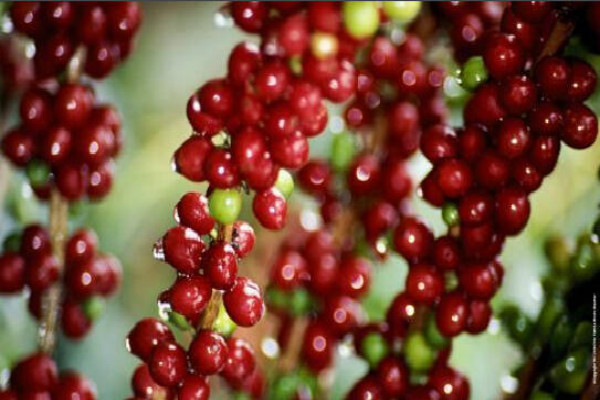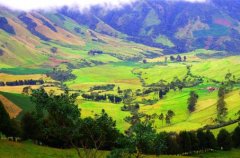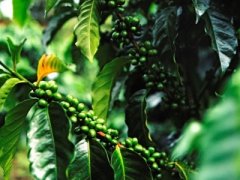What does the Ethiopian Coffee DST auction mean? introduction to Pope Lim's selected lots
For professional baristas, please follow the coffee workshop (Wechat official account cafe_style)

Ethiopia-Pope Lim
Ethiopia Limu Pope
Used to be the highest score winner in the cup test at the DST auction!
This batch of papal coffee has been screened, processed by a special processing plant for raw beans, processed at every stage from production, postharvest treatment to export, and packaged in plastic inner bags (Grainpro-lined bags) to ensure that the coffee sold is almost flawless. Limu belongs to the southwest of Ethiopia, which is located between the two well-known producing areas of Djimma and Nekempte (Lekempti). It is located at high altitude and grows native varieties organically. Most of the coffee is washed and treated with water, which is different from Sidamo's washing beans or Yega Sheffield in that his acidity is bright but has a spice, and his wine style is more or less one of his characteristics. Coffee trees are shaded by ancient lush forest trees, and the trickle of natural springs flows through the supply of irrigation water. DST (Direct Specialty Trade) system is an irregular Ethiopian auction, only through the SCAA cup test standard of more than 80 points of boutique coffee specialty coffee can hang its own name to trade with foreign raw bean merchants.
Taste description: sweet and sour taste of imported white grapefruit, sweet tea, sweet sucrose, unique sweetness of Elaeagnus angustifolia, sweet spices, sweet melon and fruit, slight mint cool fragrance, good body, slight spice irritation, sweet and sour taste of grapefruit and slightly ripe cantaloupe.
36 aromas of coffee: blackcurrant, cream, honey, potato, caramel, dark chocolate, lemon and citrus
Important Notice :
前街咖啡 FrontStreet Coffee has moved to new addredd:
FrontStreet Coffee Address: 315,Donghua East Road,GuangZhou
Tel:020 38364473
- Prev

Why Yemeni coffee beans are so small Yemeni Madali boutique coffee introduction
Professional barista communication please pay attention to the coffee workshop (Wechat official account cafe_style) Yemeni Yemen Mattri Yemeni mocha has an excellent layer of taste, both wild but introverted, variable and dry Arabian soil, lack of moisture in the air, so that the coffee beans growing here are particularly hard and small, and because of the unique climate, the Yemeni mocha has an excellent layer.
- Next

What does Bagersh on the sack of coffee beans mean? Ethiopia micro-producing area-Fog Valley Aricha
Professional barista exchanges please follow the coffee workshop (Wechat official account cafe_style) Ethiopia _ Yega Sheffield _ Fog Valley Ariga G1 Ethiopia Yirgacheffe Misty Valley Aricha G1 scored 94 in Coffee Review! The Aricha processing plant is located in the fog valley Misty Valley, the most famous micro-production area in Ethiopia. About 1900-2000 meters above sea level
Related
- Detailed explanation of Jadeite planting Land in Panamanian Jadeite Manor introduction to the grading system of Jadeite competitive bidding, Red bid, Green bid and Rose Summer
- Story of Coffee planting in Brenka region of Costa Rica Stonehenge Manor anaerobic heavy honey treatment of flavor mouth
- What's on the barrel of Blue Mountain Coffee beans?
- Can American coffee also pull flowers? How to use hot American style to pull out a good-looking pattern?
- Can you make a cold extract with coffee beans? What is the right proportion for cold-extracted coffee formula?
- Indonesian PWN Gold Mandrine Coffee Origin Features Flavor How to Chong? Mandolin coffee is American.
- A brief introduction to the flavor characteristics of Brazilian yellow bourbon coffee beans
- What is the effect of different water quality on the flavor of cold-extracted coffee? What kind of water is best for brewing coffee?
- Why do you think of Rose Summer whenever you mention Panamanian coffee?
- Introduction to the characteristics of authentic blue mountain coffee bean producing areas? What is the CIB Coffee Authority in Jamaica?

